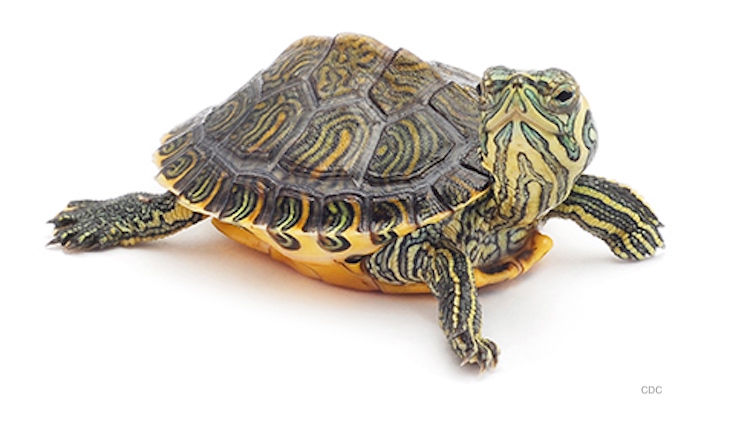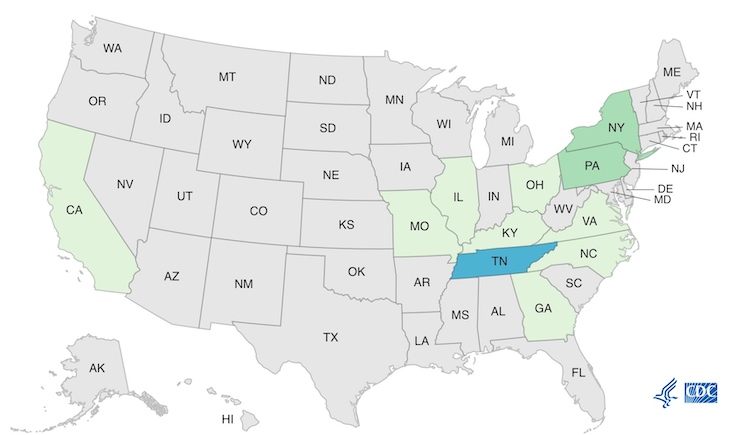Another small turtle Salmonella outbreak has sickened at least 26 people in 11 states, according to the Centers for Disease Control and Prevention (CDC). Nine people have been hospitalized because they are so ill. A federal law bans the sale of small turtles with shells less than 4 inches long because they have caused so many illnesses, especially in young children. The pathogens are Salmonella Stanley and Salmonella Pomona.

In spite of this ban, small turtles can be found being sold illegally online and at flea markets, roadside stands, and stores. Pet turtles of any size can carry Salmonella bacteria even if they look healthy. The germs spread to their bodies, tank water, and anything in the area where they live.
People get sick because they touch or snuggle these animals and then eat or touch their mouths without washing their hands first.

The case count by state is: California (1), Georgia (2), Illinois (2), Kentucky (1), Missouri (1), North Carolina (2), New York (3), Ohio (2), Pennsylvania (4), Tennessee (6), and Virginia (2). The patient age range is from less than one to 64 years. The median age of patients is 14, with 31% of those sickened under the age of 5.
State and local public health officials interviewed people about the animals they had contact with before getting sick. Of 20 people who gave answers, 16, or 80%, said they had contact with pet turtles. Of the 13 people who gave the size of the turtle, 12, or 92%, said they were small with shells less than 4 inches long.
Whole genome sequencing of patient isolates showed they they are closely related genetically. That means people in this outbreak likely got sick from the same type of animal. In July 2o23, the Tennessee Department of Health collected samples from two turtles and their tank in a sick person’s home. These turtles were purchased from a pet store. The Salmonella bacteria on the turtles and in their environment is closely related to bacteria from sick people.
When asked where they got the turtles, 46% of respondents said they bought them from online retailers. Five, or 38%, said they bought their turtle from a store, and one person bought it from a reptile show. Investigators are working to determine if there is a common source for these turtles.
The CDC advises that, no matter what the size your turtle is, take steps to stay healthy around it. Wash your hands after handling the turtle or anything in its environment. Supervise children when they are around the turtles and supervise their hand washing after playing. Do not let them kiss or snuggle the turtles. Keep supplies and the pet area clean. And do not buy small turtles with shells less than 4 inches long.




